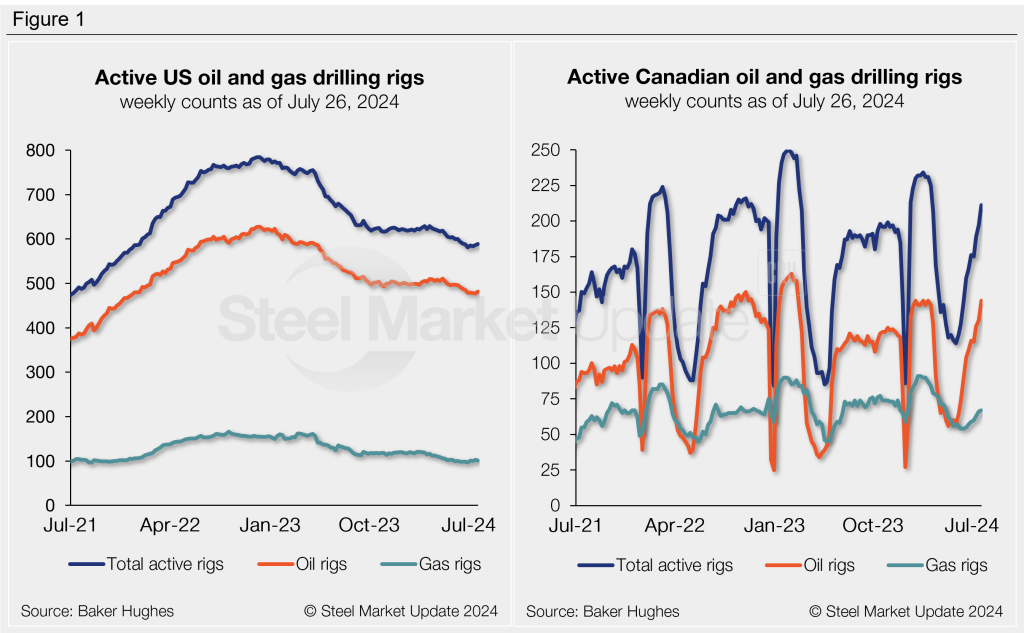Analysis
July 26, 2024
US and Canadian rig counts log increases
Written by Brett Linton
Drilling activity rose in both the US and Canada last week, according to the latest data release from Baker Hughes. US rig activity increased to a six-week high but remains near multi-year lows. Canadian counts continue to improve, now at a 20-week high.
US rigs
Through July 26 figures, the number of active drilling rigs operating in the US increased by three week over week to 589. Oil rigs rose by five to 482, gas rigs fell by two to 101, and miscellaneous rigs held steady at six.
There were 75 fewer active US rigs compared to the same week last year. The number of active oil rigs is down by 47, gas rigs are down by 27, and miscellaneous rigs are down by one.
Canada rigs
Last week, the number of rigs operating in Canada increased by 14 to 211. Oil rigs rose by 14 to 144, gas rigs increased by one to 67, and miscellaneous rigs declined by one to zero. This marks the highest Canadian count since mid-March.
Currently, there are 18 more active drilling rigs operating in Canada than there were one year ago. Oil rigs are up by 23, gas rigs are down by five, and miscellaneous rigs are unchanged.

International rig count
The international rig count is updated monthly. The total number of active rigs for the month of June rose to 957, up by four from May and down by 10 from levels one year prior.

The Baker Hughes rig count is important to the steel industry because it is a leading indicator of demand for oil country tubular goods (OCTG), a key end market for steel sheet. A rotary rig rotates the drill pipe from the surface to either drill a new well or sidetrack an existing one. For a history of the US and Canadian rig counts, visit the rig count page on our website.






